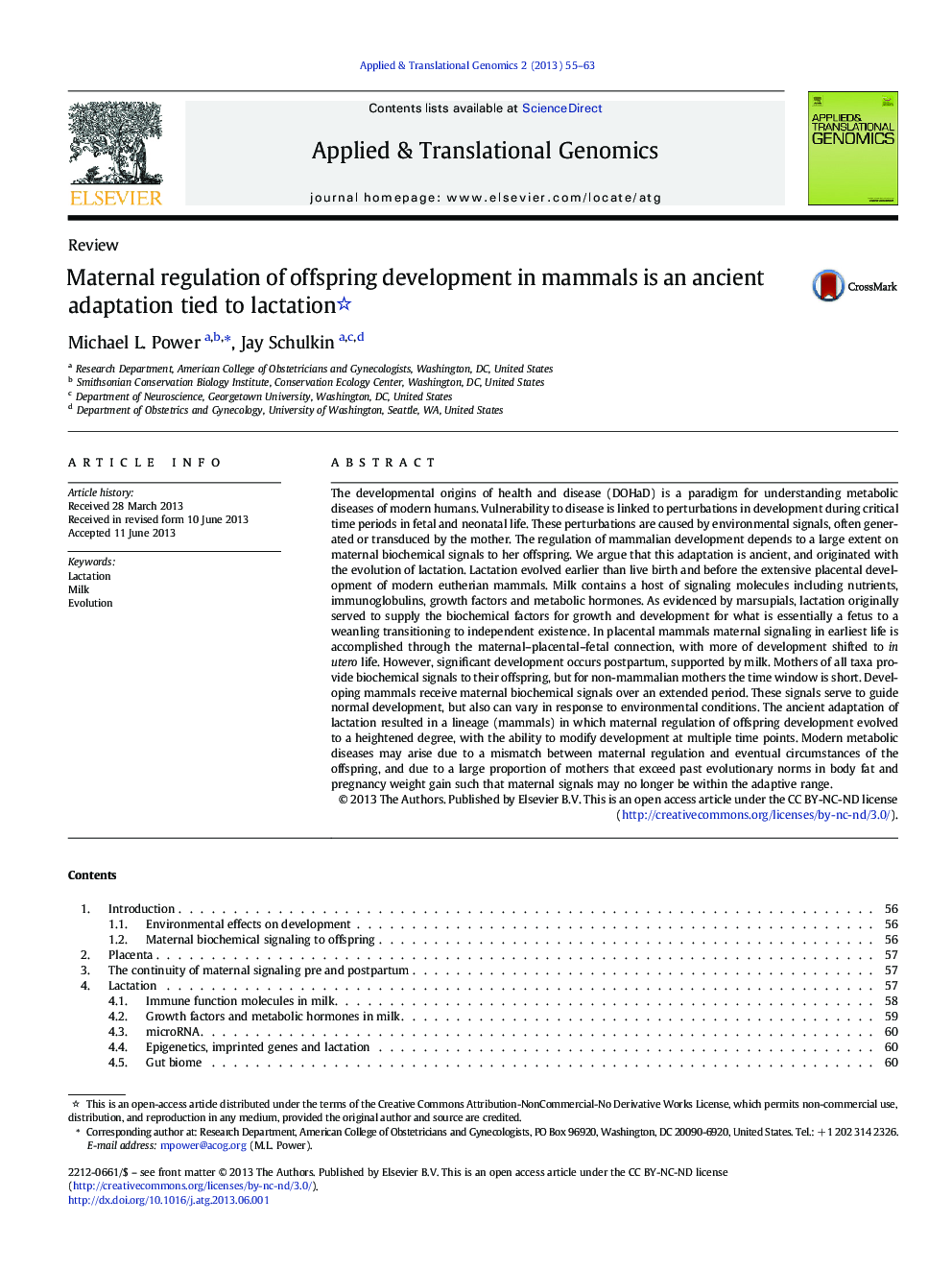| کد مقاله | کد نشریه | سال انتشار | مقاله انگلیسی | نسخه تمام متن |
|---|---|---|---|---|
| 2773029 | 1567892 | 2013 | 9 صفحه PDF | دانلود رایگان |

• Mammals display extensive maternal control of offspring development.
• Milk contains bioactive substances that affect infant development.
• Milk continues oral biochemical signaling that starts in utero via amniotic fluid.
• Milk preadapted mammalian fetuses to receive signaling via amniotic fluid.
The developmental origins of health and disease (DOHaD) is a paradigm for understanding metabolic diseases of modern humans. Vulnerability to disease is linked to perturbations in development during critical time periods in fetal and neonatal life. These perturbations are caused by environmental signals, often generated or transduced by the mother. The regulation of mammalian development depends to a large extent on maternal biochemical signals to her offspring. We argue that this adaptation is ancient, and originated with the evolution of lactation. Lactation evolved earlier than live birth and before the extensive placental development of modern eutherian mammals. Milk contains a host of signaling molecules including nutrients, immunoglobulins, growth factors and metabolic hormones. As evidenced by marsupials, lactation originally served to supply the biochemical factors for growth and development for what is essentially a fetus to a weanling transitioning to independent existence. In placental mammals maternal signaling in earliest life is accomplished through the maternal–placental–fetal connection, with more of development shifted to in utero life. However, significant development occurs postpartum, supported by milk. Mothers of all taxa provide biochemical signals to their offspring, but for non-mammalian mothers the time window is short. Developing mammals receive maternal biochemical signals over an extended period. These signals serve to guide normal development, but also can vary in response to environmental conditions. The ancient adaptation of lactation resulted in a lineage (mammals) in which maternal regulation of offspring development evolved to a heightened degree, with the ability to modify development at multiple time points. Modern metabolic diseases may arise due to a mismatch between maternal regulation and eventual circumstances of the offspring, and due to a large proportion of mothers that exceed past evolutionary norms in body fat and pregnancy weight gain such that maternal signals may no longer be within the adaptive range.
Journal: Applied & Translational Genomics - Volume 2, 1 December 2013, Pages 55–63